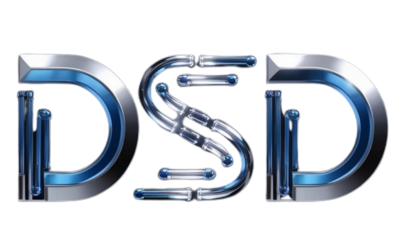The technical service sector has evolved into a more complex and sophisticated structure each year, driven by the rapid advancement of technology.
This transformation is not limited to the increasing complexity of products; it also deeply reshapes the standards of knowledge, skills, and professional approaches expected from service providers.
In this context, technical service training has become a critical component for preserving quality standards, ensuring customer satisfaction, and creating a competitive advantage for businesses.
The significance of technical service training is not merely about repairing a device correctly.
Its true value lies in the development of analytical thinking skills, the enhancement of problem-solving capabilities, the standardization of service processes, and the cultivation of a professional communication approach toward customers.
The Growing Need for Technical Knowledge in the Sector
Today’s technological products are far more complex than the analog devices of the past.
Especially in fields such as mobile communication devices, computer hardware, medical electronic equipment, and industrial control systems, products now operate through integrated software and hardware systems.
This reality requires technical service personnel not only to possess basic repair skills but also to demonstrate competencies in:
- Electronic circuit analysis,
- Diagnosing software failures,
- System integration and error code interpretation,
- Data security and customer privacy protocols,
- Energy efficiency and environmentally friendly repair methods.
These evolving requirements clearly show that the traditional master-apprentice model in technical service is no longer sufficient by itself.
There is an ever-increasing need for structured, systematic, and continuously updated training programs to meet the sector’s demands.
Contributions of Trained Technical Personnel to Businesses
Employing trained technical personnel provides businesses with multifaceted advantages:
- Increased first-time repair success rate: Trained technicians diagnose and resolve issues accurately during the initial intervention, directly enhancing customer satisfaction.
- Reduced service times: Technicians equipped with the right knowledge solve problems faster, decreasing service backlogs and increasing overall operational capacity.
- Lower return and complaint rates: Mistakes and incorrect applications are minimized, reducing costs associated with returns and complaints.
- Ensured workplace safety: Trained personnel adhere strictly to device safety procedures, protecting both themselves and customer safety.
- Strengthened corporate reputation: Delivering professional service boosts the brand’s credibility and expands its market share.
Thus, technical service training is not merely an investment in individual capability; it is a strategic investment that enhances overall business efficiency and competitiveness.
Training Models and the Necessity of Continuous Development
The rapid pace of technological change means that knowledge acquired today can become outdated within just a few years.
For this reason, technical service training must be approached as a continuous process rather than a one-time endeavor.
An effective training model should include:
- Fundamental training: Building a solid base in electronics, software, and mechanical systems,
- Advanced training: Offering specialized courses tailored to specific device types, brands, and models,
- Certification programs: Providing national and international credentials that officially document technicians’ competencies,
- Ongoing professional development: Regular updates on new technologies, revised repair protocols, and sectoral innovations.
Moreover, training should not be limited to theoretical knowledge; it must be supported by practical hands-on modules.
In technical service, practical experience is just as crucial as theoretical expertise for achieving success.
The Importance of Technical Service Training
The technical service sector has evolved into a more complex and sophisticated structure each year, driven by the rapid advancement of technology.
This transformation is not limited to the increasing complexity of products; it also deeply reshapes the standards of knowledge, skills, and professional approaches expected from service providers.
In this context, technical service training has become a critical component for preserving quality standards, ensuring customer satisfaction, and creating a competitive advantage for businesses.
The significance of technical service training is not merely about repairing a device correctly.
Its true value lies in the development of analytical thinking skills, the enhancement of problem-solving capabilities, the standardization of service processes, and the cultivation of a professional communication approach toward customers.
The Growing Need for Technical Knowledge in the Sector
Today’s technological products are far more complex than the analog devices of the past.
Especially in fields such as mobile communication devices, computer hardware, medical electronic equipment, and industrial control systems, products now operate through integrated software and hardware systems.
This reality requires technical service personnel not only to possess basic repair skills but also to demonstrate competencies in:
- Electronic circuit analysis,
- Diagnosing software failures,
- System integration and error code interpretation,
- Data security and customer privacy protocols,
- Energy efficiency and environmentally friendly repair methods.
These evolving requirements clearly show that the traditional master-apprentice model in technical service is no longer sufficient by itself.
There is an ever-increasing need for structured, systematic, and continuously updated training programs to meet the sector’s demands.
Contributions of Trained Technical Personnel to Businesses
Employing trained technical personnel provides businesses with multifaceted advantages:
- Increased first-time repair success rate: Trained technicians diagnose and resolve issues accurately during the initial intervention, directly enhancing customer satisfaction.
- Reduced service times: Technicians equipped with the right knowledge solve problems faster, decreasing service backlogs and increasing overall operational capacity.
- Lower return and complaint rates: Mistakes and incorrect applications are minimized, reducing costs associated with returns and complaints.
- Ensured workplace safety: Trained personnel adhere strictly to device safety procedures, protecting both themselves and customer safety.
- Strengthened corporate reputation: Delivering professional service boosts the brand’s credibility and expands its market share.
Thus, technical service training is not merely an investment in individual capability; it is a strategic investment that enhances overall business efficiency and competitiveness.
Training Models and the Necessity of Continuous Development
The rapid pace of technological change means that knowledge acquired today can become outdated within just a few years.
For this reason, technical service training must be approached as a continuous process rather than a one-time endeavor.
An effective training model should include:
- Fundamental training: Building a solid base in electronics, software, and mechanical systems,
- Advanced training: Offering specialized courses tailored to specific device types, brands, and models,
- Certification programs: Providing national and international credentials that officially document technicians’ competencies,
- Ongoing professional development: Regular updates on new technologies, revised repair protocols, and sectoral innovations.
Moreover, training should not be limited to theoretical knowledge; it must be supported by practical hands-on modules.
In technical service, practical experience is just as crucial as theoretical expertise for achieving success.




